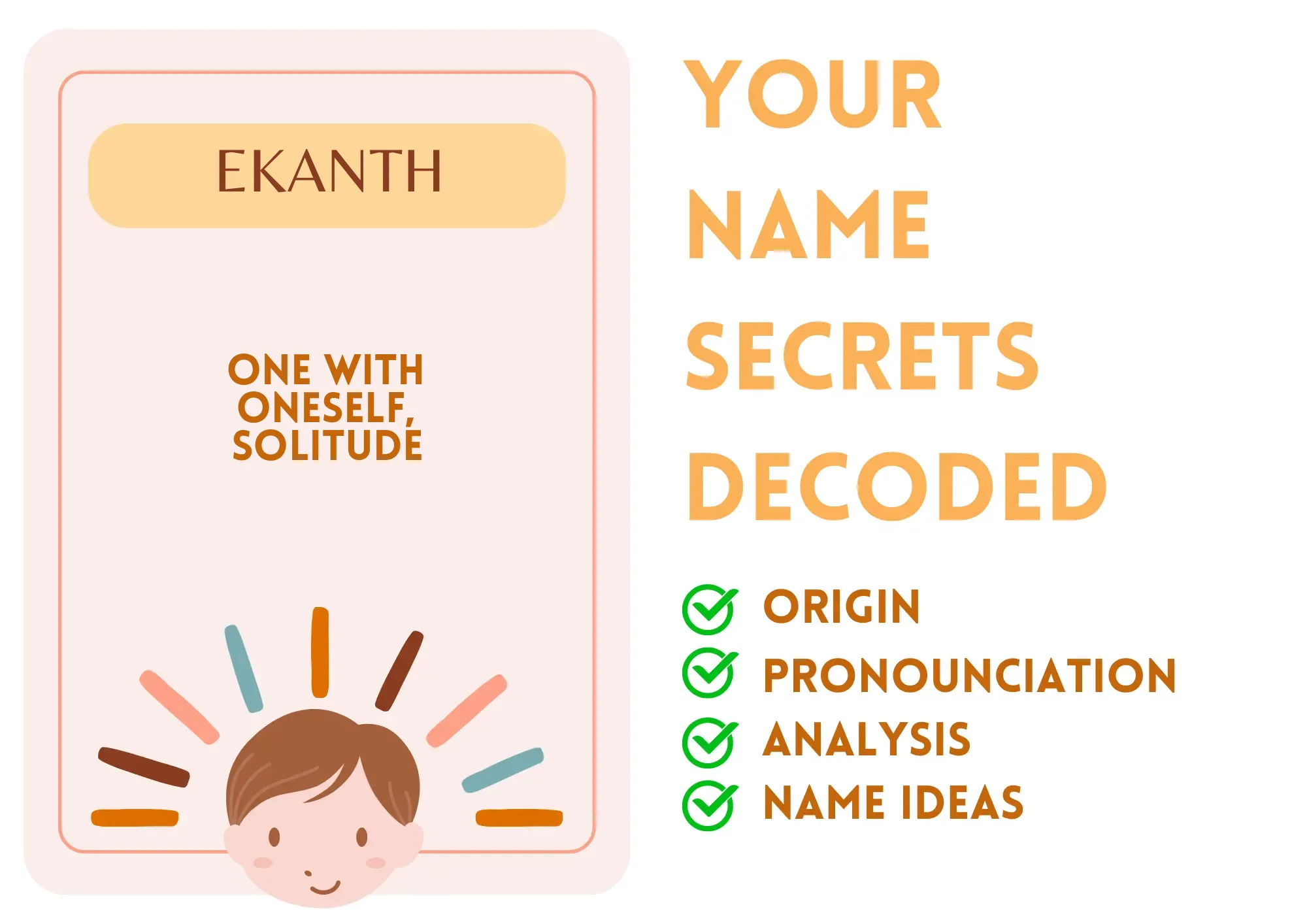
Ekanth
Ekanth is a meaningful and unique name of Indian origin, derived from the Sanskrit word 'Ekantha' which signifies 'one with oneself' or 'solitude'. It embodies a sense of tranquility and self-reliance, making it spiritually significant. Ekanth is predominantly used as a masculine name, and it reflects a deep philosophical understanding of individuality and self-awareness.
The name is positively received and evokes feelings of introspection, peace, and independence. It is simple to write and pronounce, with some common nicknames for ease of calling.
Ekanth has a visible presence in cultural and spiritual contexts, making it a favored choice among parents who emphasize inner strength and contemplative nature in their child.
Basic Information
Gender: Boy
Sounds Like: EH-kant
Pronunciation Explanation: The emphasis is on the first syllable 'EH', and the second syllable is pronounced like 'kant'.
Summary and Meaning
Meaning: one with oneself, solitude
Origin: The name Ekanth has Indian roots, specifically in the Sanskrit language, which is rich in philosophical and spiritual terms.
Usage: Ekanth is traditionally a masculine name, though it is seldom used for females.
Name Number (Chaldean)
Name Number (Pythagorean)
Name Constellation (Nakshatra)
Name Zodiac Sign (Rashi)
Religious and Cultural Significance
Religion: Hindu
Background: In Hindu philosophy, the name Ekanth resonates with the ideals of self-realization and solitude, often linked to introspective practices and self-discipline.
Cultural Significance: Ekanth is appreciated for its profound meaning and philosophical connections, often chosen for boys born into families that emphasize traditional values and spiritual wisdom.
Historical Significance: The concept of Ekanth can be traced back to various philosophical texts and teachings within Hinduism, emphasizing the importance of self-awareness and detachment from the material world.
Popular Culture
Literature and Mythology: While not widely featured in popular mythology, the essence of Ekanth can be found in philosophical literature concerning solitude and self-reflection.
Movies and Television: There may be characters named Ekanth in regional cinema that portray the themes of introspection, but it currently does not have widespread representation in mainstream media.
Feelings and Perceptions
Perception: Ekanth is generally perceived positively. It is viewed as a unique and deep name that holds significance in personal growth and introspection.
Positive Feelings: Unique, introspective, tranquil, wise, contemplative.
Negative Feelings: Might be seen as too unique or unfamiliar for some, with potential for mispronunciation.
Practical Considerations
Ease of Writing and Calling: Ekanth is quite straightforward to write and pronounce, consisting of six letters and two syllables, making it memorable and easy to call.
Common Typos and Misspellings: Ekanthh,Ekenth,Ekanth,Ekanth
Common Nicknames: Eka,Kant
Compatibility Analysis
Famous Persons Named Ekanth
No results found for Ekanth.
Related Names
Similar Sounding Names:
Ekantha,Ekansh,Ekanthas
Similar Meaning and Related Names:
Sibling Name Ideas (Brothers):
Sibling Name Ideas (Sisters):
Mira ♀️
Hindu, Jewish